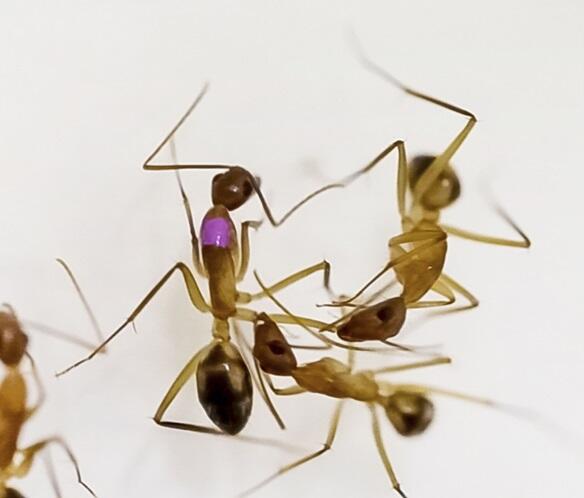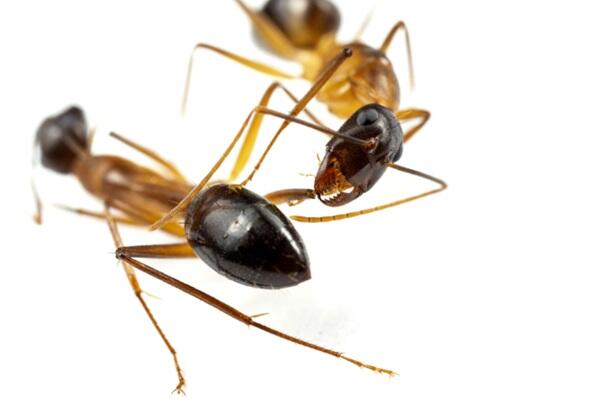A species of ants is capable of treating the leg wounds of nestmates, including through biting off the injured appendage to prevent fatal infection and enable more in the colony to survive, a team of scientists from European and Japanese universities has found.
The discovery of such behaviors among Florida carpenter ants was made public in the U.S. science journal Current Biology earlier this month.
Evan Economo, a team member and professor at Okinawa Institute of Science and Technology Graduate University, said it was the first confirmation that the ants can differentiate injury types and adapt their treatment accordingly.

(Photo courtesy of Dany Buffat and Erik Frank)
Provided by Kyodo News
In the research, some 200 ants were filmed while their behaviors toward nestmates given experimental wounds at varying places on the leg were evaluated.
For an injury toward the end of a leg, in the tibia segment, the ants only cleaned the wound orally, but would gnaw the leg off when the femur section closer to the body was damaged.
The scientists presume these behaviors were observed because bacteria spread more slowly in the femur area than in other parts, allowing a time-consuming amputation to save the individual from infection.
The survival rate when the ants performed amputation was 95 percent, more than double when the ants only cleaned the injuries, according to the research.

(Photo courtesy of Bart Zijlstra and Erik Frank)
Provided by Kyodo News
Erik Frank, who led the research team as a professor at the University of Lausanne, described the behaviors of Florida carpenter ants as "the most sophisticated form of medical wound care in the animal kingdom."
"We were able to deduce that the behavior is deliberate and always directed toward femur-injured ants. It likely took millions of years for the ants to perfect these kinds of treatments," said Frank, who currently serves as a professor at the University of Wuerzburg in Germany.
"The ants have likely been performing amputations before humanity even existed," he added.
"With a little effort one ant can save the life of another, and ultimately help itself because the colony will thrive and pass on their common genes," Economo said.




